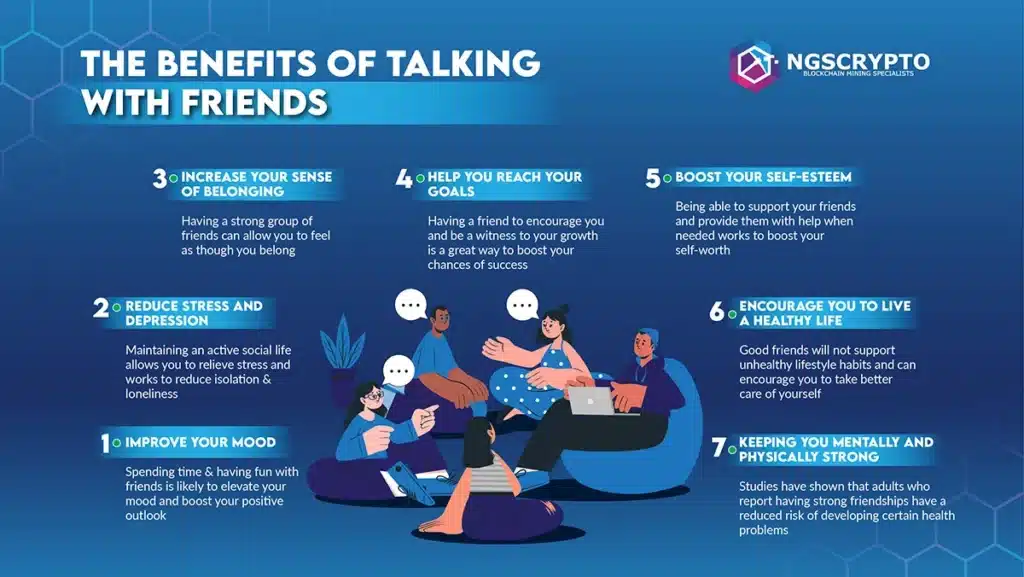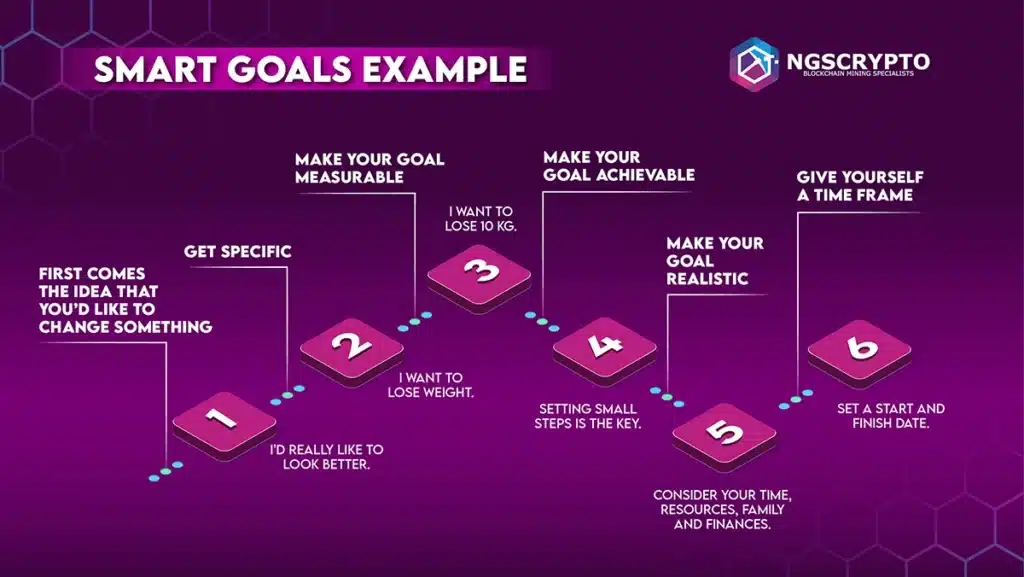NGS Crypto is an Authorised Reseller of NGS Group Blockchain Mining Packages
NGS Crypto is an Authorised Reseller of NGS Group Blockchain Mining Packages


Written by Katya Richardson
Share this article
Retirement – a word that often stirs a mix of emotions. For many, it symbolises rest, new beginnings, and the freedom to follow passions long set aside. Yet, for others, the very thought can be daunting, ushering in uncertainty and a fear of the unknown.
In this article, we delve into the heart of these emotions, equipping you with the tools to face this transition with excitement. Let’s journey together to ensure your retirement is not just financially secure, but emotionally enriching as well.
Starting a new chapter without the daily grind of work can stir up a mix of emotions. Retirement isn’t just about putting your feet up; it’s a journey filled with ups and downs. Let’s dive into some of the feelings many retirees go through:
Before retirement,
During retirement,
After retirement,
Being aware of these emotions and their potential impact can assist in making the transition to retirement smoother and more fulfilling.
The rollercoaster of emotions sometimes occurs when it comes to retirement. Truth be told, retiring is a significant sea change. It means leaving behind daily habits and routines that you might’ve held onto for many years.
By diving deep into self-reflection and personal discovery before you finish up, you’ll be better positioned emotionally for this new phase, and you can even map out an ideal retirement life. So, where should you begin? Here are some top tips to mentally gear up for retirement:
Journaling is a remarkable tool for managing stress. By maintaining a journal, you enhance your mental clarity, aiding in problem-solving and sharpening your focus. Through reflective writing, you sweep away the mental cobwebs, transferring challenges from your mind to the page. This transition enables you to navigate change more effectively.
Embarking on a journaling journey is a positive habit to cultivate before heading into retirement. Penning down your concerns, thoughts, and emotions not only provides relief but also offers a structured perspective on the retirement phase. Here are the five powerful health benefits of journaling:
An easy example is: “Missed the bus this morning and ended up being late for work. That’s why I need to always check the bus timetable the night before. But even if I have a bad day at least the weather was gorgeous today.” this way you can express your feelings and also problem-solving.
Physical exercise offers a lot of benefits. By exercising consistently, you can strengthen your muscles, maintain a healthy weight, and reduce the risks of several serious illnesses. This means you’re likely to live longer and make the most of your retirement years. But it’s not just about physical health – exercise also enhances your mental well-being.
If you’ve spent a long time in a desk job and have plans to travel or be active during retirement, it’s important to prepare your body now. You wouldn’t want your health to hold you back from enjoying all the activities you’ve planned for retirement. Make exercise a regular part of your routine. Some simple ways to stay active include:
Heading into retirement can bring up all sorts of feelings. Some days you might be excited, thinking of all the free time. On other days, you might feel a bit unsure about what’s next. It’s a big change, just like when you start a new job or move to a new place.

Here’s a tip: Talk about it. Whether it’s with friends or family, having a chat can help you feel better and more ready for this new chapter. Share your plans, even the small ones, with them. They’ll be happy to hear and might even join you in some activities. So, keep chatting and looking forward to the good times ahead in retirement.
Thinking about what you want from your retirement is the first step. Once you’ve got a clear picture, it’s time to make a plan and set some goals to bring that vision to life. But remember, before diving into the plan, you need a clear goal. When you’re jotting down your goal, use the SMART method.

This means your goal should be Specific, Measurable, Attainable, Relevant, and Time-Bound. It makes your goal feel real and achievable. From there, work out the steps to reach that goal. Map out a timeline and break big tasks into smaller, doable bits. By tackling a bit each day, you’re making steady progress towards your retirement dream without feeling swamped. Plus, when tasks are bite-sized, they feel much more achievable.
While it’s critical to emotionally gear up for retirement by setting goals, it’s equally important to back those goals with solid financial planning. For a step-by-step guide on how to blend these aspects, don’t miss our essential guide on Tips to Start Retirement Planning, which provides comprehensive strategies to combine emotional preparation with practical steps.
Many people save money for when they retire but forget to plan how they’ll spend their days. Without a plan, some might feel lost, lonely, or even sad. Studies show that after retiring, people might feel sadder more often. This can happen because they miss their work routine or haven’t planned fun things to do.
It’s good to think about what you want to do when you retire. Imagine all the fun things or hobbies you’ve wanted to try. Ask yourself what you might wish you had done and use that to make plans. Talking with family or friends also can help make these plans clearer.
A fun idea is to make a picture board of your retirement dreams. You can cut and stick pictures or even make one online, like on Pinterest. Another idea is to make a list of all the things you want to do. This way, you can look forward to retirement even more.
Retirement doesn’t have to be scary or tough. With the right emotional preparation, you can welcome this new chapter with enthusiasm and assurance. Planning for retirement isn’t just about finances; it’s equally crucial to consider emotional preparation. Without a clear vision, retirees might feel adrift or even experience feelings of sadness. Engaging in meaningful activities and mapping out your desires can bring joy and purpose to this new life chapter.
Remember, retirement is a golden opportunity. It’s a fresh canvas waiting for you to paint your dreams on. Whether it’s a hobby you’ve always wanted to pick up, places you’ve dreamt of visiting or simply enjoying the leisure of slow mornings now’s your moment. Dive into your passions, discover new interests, and relish in the freedom that retirement brings. This is your time to shine, explore, and truly live on your terms. Embrace it with enthusiasm and optimism.
However, while you’re getting emotionally prepared for retirement, it’s also crucial to be aware of potential missteps that could undermine your efforts. Be sure to acquaint yourself with the Biggest Retirement Planning Mistakes to avoid the common emotional and financial pitfalls that many retirees face.
The information presented on this website is general information only. It should not be taken as constituting professional advice from the website owner – NGS Crypto PTY LTD (NGS Crypto). Any information regarding past performance and returns contained on this website should not be construed or interpreted as a prediction or opinion as to future performance and returns. NGS Crypto is not a financial adviser. All views and observations expressed by NGS Crypto on this website are for information purposes only, are general in nature and should not be treated as investment or financial advice of any kind.
NGS Crypto is an authorised reseller of NGS Group blockchain mining packages. The information presented on this website (https://ngscrypto.com) is general information only. It should not be taken as constituting professional advice from the website owner – NGS Crypto PTY LTD (NGS Crypto). Any information regarding past performance and returns contained on this website should not be construed or interpreted as a prediction or opinion as to future performance and returns. NGS Crypto is not a financial adviser. All views and observations expressed by NGS Crypto on this website are for information purposes only, are general in nature and should not be treated as investment or financial advice of any kind. Before making an investment in crypto assets, you should consider seeking independent legal, financial, taxation or other such professional advice to check how the information on this website relates to your unique circumstances. NGS Crypto is not liable for any loss caused, whether due to negligence or otherwise arising from the use of, or reliance on, the information provided directly or indirectly, by use of this website. You can view our full terms & conditions by clicking here.
NGS Crypto is not affiliated, associated, authorized, endorsed by, or in any way officially connected with this NGS Super (ABN 73 549 180 515).
© 2024 NGS Crypto
NGS Crypto is an Authorised Reseller of NGS Group
| Cookie | Duration | Description |
|---|---|---|
| cookielawinfo-checkbox-analytics | 11 months | This cookie is set by GDPR Cookie Consent plugin. The cookie is used to store the user consent for the cookies in the category "Analytics". |
| cookielawinfo-checkbox-functional | 11 months | The cookie is set by GDPR cookie consent to record the user consent for the cookies in the category "Functional". |
| cookielawinfo-checkbox-necessary | 11 months | This cookie is set by GDPR Cookie Consent plugin. The cookies is used to store the user consent for the cookies in the category "Necessary". |
| cookielawinfo-checkbox-others | 11 months | This cookie is set by GDPR Cookie Consent plugin. The cookie is used to store the user consent for the cookies in the category "Other. |
| cookielawinfo-checkbox-performance | 11 months | This cookie is set by GDPR Cookie Consent plugin. The cookie is used to store the user consent for the cookies in the category "Performance". |
| viewed_cookie_policy | 11 months | The cookie is set by the GDPR Cookie Consent plugin and is used to store whether or not user has consented to the use of cookies. It does not store any personal data. |